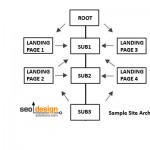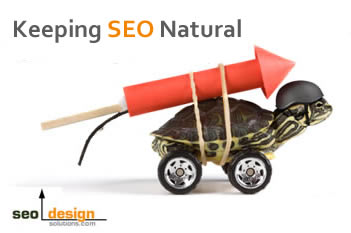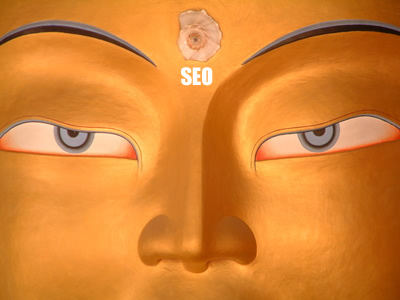Often you hear people say, “if I only knew then what I know now”, and how things would be different if I could have applied the pearls of wisdom from the start, instead of just random knowledge. Similarly in SEO there is a frequent disconnect between SEO techniques, tactic, strategies and the reason for implementing them to begin with.
Based on this notion, it’s time to separate the wheat from the chaff and discuss keywords, search behavior and real SEO tips you can use to produce tangible results. Consider this invaluable SEO Wisdom as we seek to enlighten those new to SEO with our first tactical conclusion.
Your Website Needs Distinction
This is more than just a bold statement, in fact, by the time you read this, your website has lost business to a competitor for a keyword that either 1) they optimized better than you did or 2) from the consumer visiting your website and then purchasing from a competitor (because your page failed to convey urgency or intent).
Competition is real, so ignore the facts at your own risk. If your website is dependent on commerce, then you need to own your topic within the context of your own Web site. Pages should optimal, meaning that they are structured to convey relevance.
Not only should this structure make sense to the end user, but also to search engines through solidifying topical intent with links, preferred landing pages and supporting pages with context to pass on ranking factor to critical areas of the website.
What happens when someone is using a search engine and does not find what they are looking for? They go back to the search engine they were just using and execute another search until they either (a) find what they are looking for (b) they find its close cousin and spin off on another search tangent or (c) simply move on.
Deliver What Consumers Expect or Risk Abandonment
To rally back to the point, in today’s fast-paced value driven society you can serve as a resource or a destination online. If you fail to provide what users expect, if you fail to convey trust, confidence, or competence, then your website will simply be a memory.
Did I mention you only have 10 seconds to pass the initial synopsis of (a) is this what I am looking for? or (b) will this page suffice? Which determines the degree that a prospect investigates your offer?
This by far exceeds any degree of SEO and is the reason why you are using SEO to begin with. So, if you ignore this critical step, your website will only be a speed bump or a pothole on the information highway as eager consumers find alternative websites more fitting for their immediate needs.
It doesn’t matter if you’re an early or late adapter, don’t miss the boat or you’ll be playing catch-up for months (or years), depending on the keyword.
Wikipedia is great, but how’s that going to help someone when they’re searching for a product or service? The fact is, different search queries yield different results, but the distinguishing factor is intent.
Now here is the SEO pearls of wisdom part of the post. Starting with the the fact that you may not always be first on a page for a keyword, however, you can have a larger percentage of keyword market share which means that each keyword has to perform less to drive more converting keywords to your pages. That was one pearl, so lets move on to other SEO solutions learned from trying things the hard way…
Never Bite Off More Than You Can Chew
Naturally, you want to rank for the most competitive keywords with the highest volume of traffic, but what you want and what you get all depend on (a) the resources you have at your disposal and (b) how long it will take to implement and achieve measurable results.
It’s better to start a campaign and build rapport with search engines and search engine spiders before opening the throttle wide open and targeting the most competitive keyword or…
Don’t Overlook GEO Targeting
If you website doesn’t have enough steam to capture aggressive national rankings, use a tiered ranking system within your own pages to snatch up as many relevant GEO targeted terms.
Although there is not always significant search volume from such regional and local modifiers, they are a great source of mid-tail to long-tail traffic but the ultimate goal is to reinforce enough continuity within your website to topple the main root / national phrase.
Focus on Market Share Not Just Keywords
Keywords are only great if people actually use them in the first place “exact match” or click on related keywords “broad match” from a search tangent. It is much easier to target a plethora of keywords and keyword modifiers based on user intent and how they may utilize specific phrases when in need.
For the record, commercial keywords and educational keywords have an immense gap between them (one pays the bills and the other one gets you a pat on the back with “good post”) which is nice, but ROI is a prominent objective online.
Ideally, your website should have enough content to support the keywords or enough links to support the website popularity required to breach the top 10 results.
Add Content to Increase Relevance
Your website is scalable, if you know your pages are light on keywords then start building logical bridges in keyword context through internal links and additional subfolders and / or pages or posts.
If you are adding a substantial amount of content quarterly to your website or blog, eventually the worth of those pages will yield link weight which you can wield any way you chose through linking or redirects.
Manage Each Keyword as Its Own Campaign
You need to find out who is the main authority for your main keywords and implement a plan of action to consistently build value, relevance and popularity for that keyword.
Nine times out of ten, people forget the first rule, they bite off more than they can chew and end up with lackluster results across a broad array of organic keywords.
Guard yourself from this process and chart your rankings, hits, conversions, inbound links from other sites and results for each keyword that you would consider in your top 20 most coveted list and make sure you are taking actions daily to main them from getting rolled of the page from your competition.
Get Creative With Your Link Building Methods
Sure, you could try traditional methods like article submissions, directories, keyword-rich contextual blog links, etc. but collectively they have a limited shelf life as search metrics are constantly in a process of fluctuation.
You will constantly need to innovate new ways to attract quality backlinks from editorial and authoritative sources (unless you want rankings to recede). The other alternative is to strengthen your on page SEO to offset the brute force link tactics of bullying your way to the top of search results.
Other methods for building links include developing unique and useful industry-specific software (taking a top down approach to your market) and attracting the usage and links from authority sites such as APPLE, WORDPRESS, DRUPAL, Mozilla, etc. or create a widget so useful, your cherished competitors may actually use it.
In which case if a link is embedded in the widget, software, css or page, there is a constant source of IP ranges and websites providing link flow back to your website.
These points are distilled from years of acquiring rankings for ourselves and our clients that most only dream about, so use or dismiss them at your own discretion. The main takeaway for a successful SEO approach is, consistency, flexibility, relevance, popularity and conversion, any way you slice, dice or address them they are crucial for long-term SEO results.












Nice post Jeffrey. I love the image its caption
Thanks Mauco…
Not to mention it matches the color palette of our site to boot.
Just curious, do you link to landing pages pages with your own anchor text or to the homepage of the target website from WP/Drupal themes? The former is likely to be counted as paid links by a search reviewer.
I recall Matt saying specifically that in widgetbait links need to point at the tool page. Of course, you can link the themes to the tool and from there link to your landing pages, but I’m curious if you’ve done the former successfully without penalties.
Thanks.
That was a great post on applying SEO tactics with wisdom.
I think that by defining your SEO strategy, will then come with your SEO tactics.
If you want to rank 1st for a very competitive keyword like “make money online”, is that worth the effort to go into? Will it make sense for me, will it convert better?
It will depend on what is your website strategy, is it to make money from Adsense? Is it to educate others? Is it to convert to sales for niche?
Ask yourself these question first before starting your website.
@Yura:
Personally, I wouldn’t risk getting penalized. It is already strange enough to have an immense amount of backlinks coming into a site to begin with.
Better to chose a relevant landing page, then link from that page to another internal page with the anchor of choice, than try to use an off topic anchor and irritate end users and search engines with a blatant promotional link.
So, to the homepage or widget page, then cap the links leaving that page and only use relevant anchors to your real “preferred” landing page (with keyword-rich anchor).
@Joshua:
With top level phrases that are broad such as that, you are much better off finding dozens of more descriptive modifiers that collectively represent a higher caliber of query and represent the intent of the searcher that is further along in the purchasing cycle.
For example, affiliate programs to make money online, how to make money online, etc… Tackling the root phrase will be the most saturated, sure you can do it, but why wait so long to see results when you can enjoy some low hanging long-tail fruit along the way.
Thanks to you both for commenting.
Ahem, having lots of links pointing at a site isn’t strange: it’s called awesome tool/article :)
But yeah, I’d go on the safe side and link to the tool page (how relevant is linking to the homepage of a client’s site that’s not entirely related to a CMS? Or do you link to *your* homepage?)
Thanks.
@Yura:
I would link to “my homepage” with the company name as anchor to avoid any abuse and then funnel the link flow from that page by capping the outbound anchors leaving that page.
Just a preference, but totally up to you. One of the anchors should be to a sitemap though, that way the entire site, segment or subfolder that the sitemap feeds also benefits.
Hmm, does “my homepage” mean your homepage or “your homepage”, which belongs to the customer?
Sorry, I’m sleepy, can’t think.
Thanks.
Implying to the homepage of the site of whoever created the widget. Then from there, link to the preferred landing page with the anchor text you want the preferred landing page to rank for.
The first homepage link is neutral, the one linking out to your preferred landing page is keyword-rich. Hence, you are just sculpting link flow through internal linking; not to mention you can create an indented double listing as well through this method when two or more pages exists as relevant destination pages.
Linking to neutral page, then an anchor link to the target page. Got that: this is easy.
However, as I see it, the problem is, if you are creating a widget for a client, you’d probably publish the widget on the client’s site, right?
Otherwise, if you link to *your* homepage, you’ll have to link to all of your clients from the homepage. Would it make sense?
So it simply means that you need to link to the homepage of the client (even with his company name) and go from there as you described.
But anyone wanting to find more about the theme won’t be able to find theme info on the client’s site.
So it’d simply make site to release a widget/theme and link to the theme/widget page on the client’s site – not who developed the widget/theme – and then to the landing pages. Of course, in this case all support lies on the shoulders of the developer.
Did I clarify my question or I made a mess of it?
I mean, it’s easy to say what you say, when you are the developer and promoting your own site. That’s easy. But what if you want to use widget promotion to boost a client’s site, but he doesn’t do web development? This is where it becomes tricky.
Yura:
I believe this topic deserves its own post as it is a valid concern.
If you host the widget on your own site, you are missing the point of acquiring the real link (Apple, Drupal,Software Directories Etc.),let them host it as part of their array of products/widgets to support their platform which in turn provide you with the real link.
By them hosting it, they link to you (or your secondary site), how you extract link juice from that later is a matter of choice.
I don’t think I would go so far as to create another site, another alternative is to have it link to a widget page on their site, then from their use the keyword rich anchor to link to your homepage, or preferred landing page (thus delegating link flow to the target page).
Just my .02 cents here.
Thanks for giving all the details.Completely agree with your last part.Look forward to more such posts from you.
Great post Jeff and magnificent terminology. One thought comes to mind when reading this post, and that is the point that Rome was not built in a day. This goes for websites and SEO as well. It is so difficult to explain to people that SEO takes time and patience and the results will show in time. We live in a generation where quick results are almost mandatory.
@Matthew:
Another saying comes to mind. Slow and stead wins the race. Volumes could be written about managing expectations while climbing to the mecca of a given keyword or niche and the value of patience and consistency.
Chipping away layer by layer until critical mass is realized requires persistence and patience. I can assure you though, once you have tasted the nectar of a popular keyword and passed the top 3 threshold, there is no substitute.
They say the journey is the destination, I would have to agree. After you reach that point for one keyword, there is always another, and another, and another to embrace, optimize and enjoy.
I always buy essays or essays written just about this post.
Great post about SEO ! I’m currently searching for new ways to achieve good results for my site.